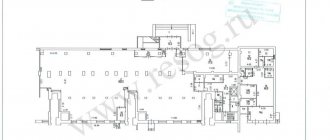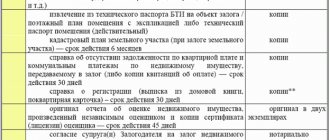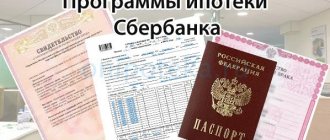What is accounting in a housing construction cooperative?
Housing cooperatives are not commercial organizations that independently carry out accounting of their own funds, their income and expenses.
This procedure is regulated:
- Clause 3 of Article 50 of the Civil Code of the Russian Federation.
- Section 5 of the Housing Code of the Russian Federation.
At the construction stage of the housing cooperative, all shareholders pay contributions . They differ in purpose and targeted spending:
- Shares intended for the construction of a residential property.
- Membership fees, which are also divided into two categories - entrance, current and additional. Entrance fees are paid in a lump sum and are used for landscaping or construction activities. Current payments are paid according to a set schedule and are used to cover current or recurring expenses. Additional fees are charged in unplanned situations - losses or accumulated debts.
- Communal payments.
Money for housing cooperatives can also come from the state and/or municipal budget. For example, subsidies to help with construction work, repairs, maintenance or maintenance of apartment buildings.
If there are beneficiaries among the shareholders, then the municipal budget transfers a certain amount of funds to compensate for part of the utilities.
This money forms the general budget and is used for the construction of an apartment building and its subsequent maintenance. Accounting ensures the targeted management of incoming funds, both at the construction stage and during subsequent operation.
Who does the accounting?
Accounting reports in housing complexes and housing cooperatives are maintained by a hired specialist. Theoretically, the responsibility for keeping records can be assigned to any person, but in practice, only specialists qualified in accounting can manage incoming funds competently.
A chief accountant and his assistants are hired to do accounting in the MKD. The accounting department staff may consist of 2-3 accountants or be carried out by one person. The accountant is appointed by order of the chairman. The identity of the employee can be submitted for discussion by all members of the housing cooperative or accepted by the chairman alone.
The hired person signs a liability agreement. His responsibilities include developing accounting policies within a specific housing cooperative or housing cooperative. Legislative norms do not establish one single standard for accounting in housing cooperatives, so the accountant develops an individual accounting system.
The process of checking a housing cooperative by the audit commission
The Audit Commission is an authorized body that controls the financial activities of housing cooperatives and the work of the management apparatus. The commission composition is approved at the general meeting of members of the cooperative. The procedure is carried out annually, although in accordance with Article 150 of the RF Housing Code, the commission can be elected for a period of up to 3 years.
According to the law, the commission cannot include those persons who are in leadership positions in the housing cooperative. But third parties who are not members of the cooperative may be invited to conduct an inspection. The Audit Commission consists of:
- Chairman.
- Several members.
The number of commission members is prescribed in the Charter of the cooperative.
The commission arranges an audit of financial statements once a year. She is required to track financial activities over the past period and reconcile income with expenses. It is also her responsibility to establish the accuracy of the data provided.
Based on the results of the inspection, an audit report is drawn up, which sets out the results of the inspection.
How to draw up a balance sheet
The management of the HOA is obliged to know the entire list of reporting documentation and the deadlines within which they must be submitted to the relevant supervisory and control authorities. Housing complexes, housing cooperatives and homeowners' associations accrue depreciation of fixed assets, which is reflected in the accounting records in an off-balance sheet account, and in the financial statements - in the Certificate of availability of assets recorded in off-balance sheet accounts.
Legislators oblige such organizations not only to generate and present standard reporting for legal entities, but also to report to authorities, housing supervision authorities, and the general meeting of members. Every year the list of submitted reports expands, making the work of chairmen more difficult and forcing them to study the difficult language of regulatory documents.
Unlike the estimate of income and expenses of the HOA, as well as the report on its implementation, which are primarily internal documents of financial planning and control, financial statements reflect the actual results of the partnership’s activities, its property and financial position and are presented to external users.
Partnerships are not subject to mandatory auditing, so they are not required to include an audit report as part of their annual reporting. According to clause 49 of PBU 4/99 “Accounting statements of an organization,” interim accounting statements consist of a balance sheet and a profit and loss statement.
The company's income is shown in the income statement (Fig. 2). It is filled out along with the simplified balance sheet in 2021, also known as Form 2, profit and loss statement.
The balance sheet is an internal document of the partnership and is intended to evaluate the financial performance of the structure and plan budgets for the next year.
Accounting statements can be presented to the user by the organization directly or transmitted through its representative, sent in the form of a postal item with a list of attachments, or transmitted via telecommunication channels.
Income and expenses
Accounting for residential complexes and housing cooperatives consists of income and expenses, which are accounted for according to the rules of non-profit organizations. Incoming funds are accumulated in the “Targeted Financing” account. It is formed from several sources:
- Mandatory payments – contributions from shareholders.
- Amounts received from persons who are not members of the housing cooperative.
- Deductions for major repairs.
- State subsidies for the construction, maintenance and repair of apartment buildings.
Available funds must be spent strictly in targeted areas.
Housing cooperative expense items include:
- contributions to the management of the cooperative;
- Payment of utility services;
- heating;
- cleaning the local area;
- other points.
Reports on the receipt and expenditure of funds are provided to members of the cooperative and to the tax office. Every year a declaration on the organization’s income and expenses is submitted to the Federal Tax Service.
Accountant at housing cooperative
In order for accounting in a housing cooperative to be reliable and not expose its members to risk, an accounting employee must have extensive experience in this area and know all the difficulties that accounting for housing cooperatives faces in the process of operating the enterprise. Thus, despite the non-profit structure, the cooperative has the opportunity to make a profit from certain types of activities, for example, from renting out property owned by it. Housing cooperative accounting directs income from such events to the maintenance and repair of the cooperative’s property and to other expenses that do not contradict the types of activities registered in the charter, however, like any profit, they are subject to taxation. The accounting of housing cooperatives must take into account such receipts on the balance sheet and in the relevant reports.
| ...or write [email protected] |
If the cooperative repays debts and pays expenses only from the amount of contributions of its members, that is, from the funds of shareholders, and it does not carry out economic activities related to making a profit, then the accounting department of the housing cooperative reimburses the value added tax paid upon the acquisition of works and services through share contributions. Accounting in housing cooperatives accrues the unified social tax on the wages of such employees as the chairman, watchman, chief accountant and others, if any.
Accounting in the housing cooperative distributes all financial resources to current accounts, from which payments of expenses and debts will subsequently be made. However, often the deposits of shareholders are not enough to complete the construction of a residential building, and one has to resort to obtaining borrowed funds from banks and other credit organizations. The accounting department of housing cooperatives is obliged to attribute received loans to special accounts established by law. When you choose ours, you are guaranteed professional accounting in housing cooperatives, based on detailed and painstaking collection of all data.
A good accountant knows that in order to do a full-fledged job, it is necessary to draw up cost estimates for each type of service.
Accounting for housing cooperatives involves expenses such as:
- Administrative and managerial;
- For sewerage, hot and cold water supply of a residential building;
- For central heating;
- For garbage removal and maintenance of the local area;
- For communal TV antennas.
Expenses such as payments for electricity, telephone, gas are not taken into account on the balance sheet of housing cooperatives, since they are paid by residents directly to the organizations responsible for providing the above services.
Based on all of the above, we can conclude that keeping records in housing cooperatives is by no means easy and only an accountant who understands the intricacies of the activities of housing construction cooperatives, as well as some discrepancies in the Civil, Housing and Tax Codes of the Russian Federation, can cope with this difficult task. When you contact Elitar-Consulting, you are guaranteed to receive high-quality services from certified specialists who will save you from having to rack your brains over the accounting department of housing cooperatives.
Taxation
Housing complexes and housing cooperatives pay taxes at reduced rates . In accordance with Article 251 of the Tax Code of the Russian Federation, targeted funds that go to:
- payment of utilities;
- ensuring repair of apartment buildings;
- maintenance of common property.
Taxes are also not imposed on targeted funds received from the state or municipal budget, which are provided to the owners of the cooperative or residents of apartment buildings.
Housing cooperatives pay the following types of taxes:
- VAT;
- income tax;
- excise;
- property;
- transport;
- land and others.
Accounting can be carried out according to a simplified or general taxation system.
The cooperative is exempt from paying VAT if repair work or payment for utilities is carried out by intermediaries. In the case of carrying out these types of activities by specialists included in the staff of the housing cooperative, the tax is levied in the established amount.
The Ministry of Finance clarified the procedure for accounting for income of housing cooperatives using the simplified tax system
Thus, the amounts of payments by homeowners for housing and communal services received by the housing cooperative should be taken into account as part of its income when determining the tax base for the tax paid in connection with the application of the simplified taxation system.
The letter notes that the housing cooperative, which applies the simplified tax system, when determining the tax base, does not take into account entrance fees, membership fees, shares, donations, as well as deductions for the formation of a reserve for repairs and major overhauls of common property, which are made to the homeowners’ association by its members.
We recommend reading: Is it possible to build a house on land for personal farming?
Financial statements
The accounting department of housing cooperatives is required to fill out and submit monthly, quarterly and annual reports to the tax authorities. The forms are drawn up in accordance with existing legislative standards. The form of reporting and the timing of its submission to the Federal Tax Service is regulated by the organization’s Charter, but should not contradict current legislation.
The non-profit organization housing cooperative provides the following types of accounting reports to the Federal Tax Service and Rosstat:
- Balance.
- On the intended use of incoming funds.
- About financial results.
The last type of reporting is provided only if the housing cooperative carries out entrepreneurial activities.
The simplified system eliminates the need for housing cooperatives to submit reports on changes in capital and cash flows.
Balance
The balance is filled in taking into account existing rules. It must not contain corrections, errors or blots. All figures are indicated in rubles without kopecks. Rounding to the nearest whole number is carried out according to the same rules - up to 49 kopecks we round down, 50 or more we increase to the ruble.
The balance sheet of a housing cooperative reflects several lines:
- Tangible non-current assets – residual value of assets + expenses for construction in progress.
- Intangible assets – residual value of intangible assets + work in progress and R&D expenses, deposit balances, long-term investments and debts.
We do not recommend completing the documents yourself. Save time - contact our lawyers by phone:
8 (800) 302-76-94
If there is no movement of funds, if the organization does not carry out any activities, a zero balance is drawn up.
What forms of balance sheet should be filled out for housing cooperatives on the simplified tax system and how to do it in 2021
Info Therefore, it will be important to consider the features of filling out the balance in a simplified form. How simplified people should fill out a balance When filling out a balance sheet, LLCs using a simplified method must independently add the column “Code” after the column “Name of indicator”.
In it you will need to enter the indicator codes according to Appendix No. 4 to Order No. 66n. When reflecting indicators without detail, the line code must be set according to the indicator that has the largest share in the aggregated indicators (clause 5 of Order No. 66n). Data must be indicated rounded to whole numbers in thousands of rubles.
Corrections, blots, or erasures are not allowed in the balance sheet.
Please note: Costs may be associated:
- With the implementation of statutory activities.
- With conducting business activities.
- With the implementation of targeted programs on budget.
Overhead expenses should be displayed on separate sub-accounts 26-02 and 26-03 and distributed between statutory and business activities.
Data Disclosure
The rules for information disclosure are regulated by Government Decree No. 331 of the Russian Federation. This regulatory document also applies to housing cooperatives. According to established standards, housing cooperatives are required to disclose the following data:
- Name of company.
- Operating mode of the administrative apparatus.
- Link to the official website of GIS Housing and Communal Services for any additional information.
Information is posted on notice boards in publicly accessible places. If any data changes, three working days are given to make adjustments.
The absence of this information is grounds for changing the chairman. In accordance with Federal Law No. 209 dated July 21, 2014, the stands also contain information about:
- organizations;
- Charter;
- technical characteristics of MKD;
- entrances, residential and non-residential premises;
- concluded contracts for utility services;
- work on the maintenance and servicing of common property;
- metering devices – individual and communal;
- accruals;
- meetings of housing cooperative members.
Members of the cooperative can receive any information about the activities of the housing cooperative, the work of the board, charges and payments.
How are tariffs determined?
Members of the cooperative reimburse the costs of maintaining the apartment building and the work of the management apparatus . These needs are covered by each participant in the housing cooperative in accordance with the established tariffs. When calculating the amount, the following are taken into account:
- Tax payments to the budget.
- Prices for fuel and other resources spent on construction or repairs.
- Payment to the chairman, accountant and other specialists, carried out on the basis of the tariff schedule.
- Labor costs for workers.
All this data forms the tariff.
Utility payments, such as electricity, water supply, gas supply, heating, antenna and others, are calculated according to tariffs established at the state level.
Estimate
In accordance with Part 3 of Article 148 of the Housing Code of the Russian Federation, housing cooperatives are annually obliged to draw up an estimate of income and expenses. This document allows you to generate funding for the next year. The estimate is approved by the members of the cooperative at a general meeting. It basically outlines the upcoming expenses and stipulates their feasibility.
The accountant spends funds strictly in accordance with the estimate. When drawing up an annual estimate, you should be guided by the prices established for the region, and not focus on the income of housing cooperatives.
We do not recommend completing the documents yourself. Save time - contact our lawyers by phone:
8 (800) 302-76-94
The procedure and features of participation in housing and housing-construction cooperatives are regulated by the Housing Code of the Russian Federation. Read our materials about the specifics of joining and leaving the membership of a housing cooperative, as well as the rules for issuing a certificate of payment of a share, on liquidation and reorganization, on the creation of residential complexes and housing cooperatives, on the purchase of an apartment under an agreement with a housing cooperative, on housing cooperatives, and whether it is worth joining to housing cooperatives.
Postings
An accounting entry is a change in the status of accounts. Money flows from debit to credit or vice versa. Their result is a change in the cash balance up or down.
Posting examples:
- Reserve for MKD maintenance – Dt 86.02 Kt 96.
- Calculation of wages and taxes – Dt 96 Kt 70, 69.
- Accrual for carrying out work activities – Dt 96 Kt60.01.
- Personal income tax accrual – Dt 70 Kt 68.01.
- Personal income tax payment – Dt 68.01 Kt 51.
The posting must clearly reflect the essence of the operation being carried out.
Conducting accounting and auditing activities requires highly qualified specialists. The correct conduct of the financial activities of housing cooperatives depends on them. Every year, accountants prepare reports on activities for the past year and cost estimates for the next period.
Data about the report of HOAs, housing cooperatives and residential complexes
Accounting involves the regular preparation of financial statements. The procedure for its preparation is defined in the Information Letter of the Ministry of Finance of Russia dated December 24, 2015 No. PZ-1/2015 “On the peculiarities of the formation of accounting (financial) statements of non-profit organizations.”
Federal Law No. 402-FZ of December 6, 2011 “On Accounting” establishes an obligation for legal entities to provide interim reporting, and this implies the preparation and provision of a balance sheet, and this obligation also applies to HOAs. In some cases, a partnership may provide simplified reporting.
Current assets Accounts receivable 1,230 56,739 68,768 Cash and cash equivalents 1,250 12,811 3,040 Other current assets 1,260,977 0 Total for section II 1,200 70,527 71,808 BALANCE SHEET 1,600 231,609,153 1 05 Passive III.
The residual value of intangible assets is reflected (together with “work in progress” and R&D expenses associated with these assets), deposit balances (account 55), long-term financial investments (account 58), as well as long-term debts reflected in settlement accounts (60, 62 , 68, 69, 70, 71, 73, 75 and 76).
Attention Statistical reporting Non-profit organizations are entrusted with the responsibility for compiling statistical reporting. HOAs report to the statistical authorities, the list of forms of statistical observation is specified in the branches of Rosstat.
After all, the fee for an expanded staff of workers is far from small, and the report must be submitted in an expanded form. If you need a solution for servicing, say, 30-40 apartments, then it is better to choose the simplified tax system in order to save money and simplify the reporting procedure.
However, financiers recommend including in the renamed section the articles “Mutual fund”, “Target capital” and groups of articles “Target funds”, “Reserve” and other target funds.”
For internal purposes, the main of which is the current analysis of activities and timely adoption of measures to adjust the operation of the enterprise, the balance sheet - Form 1 on the 2021 form - can be compiled at any frequency and in a very wide range of its types.
Housing associations, as legal entities, are required to pay taxes on income from their activities. The use of a simplified tax system makes it possible to reduce the size of the tax base and thus reduce the cost of paying taxes, but this system requires special rules for maintaining accounting for a housing structure.







